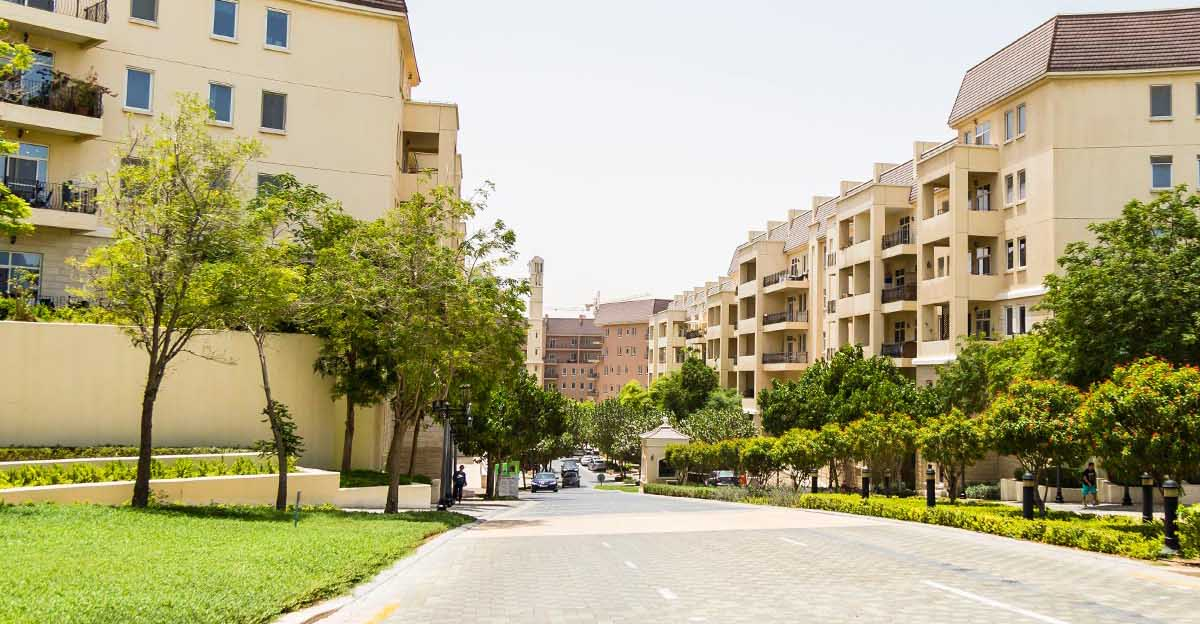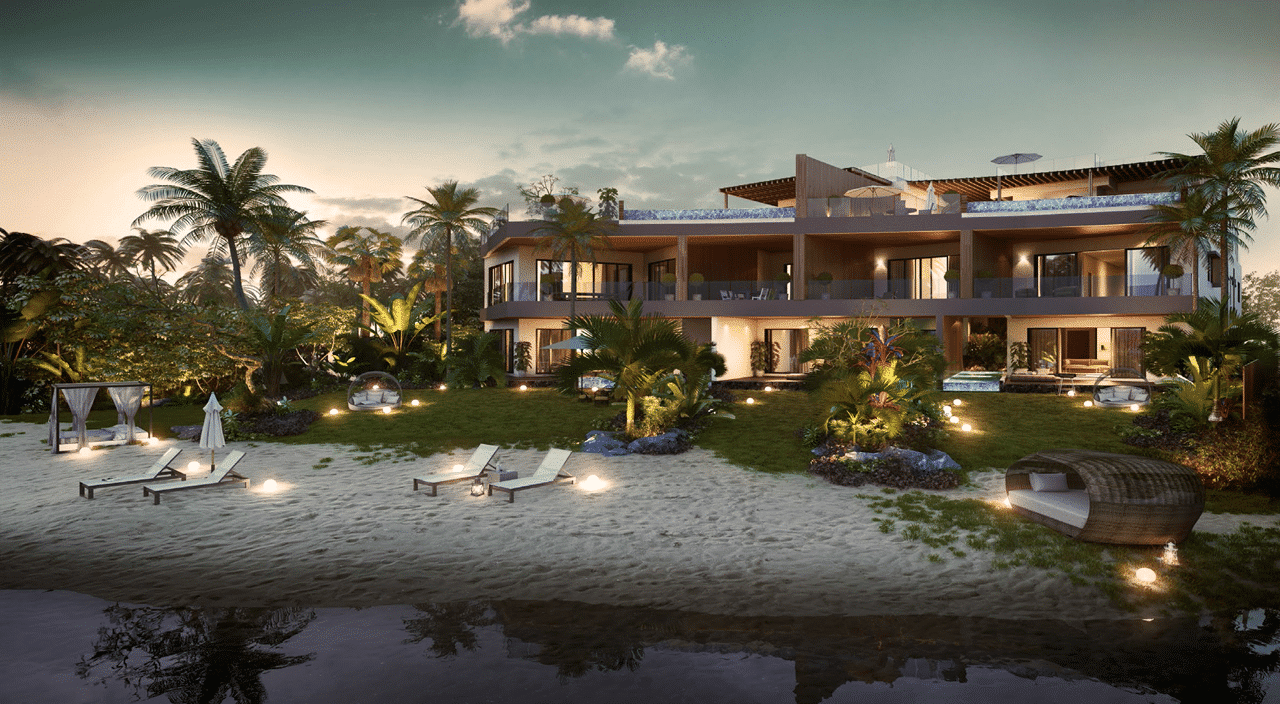Now Reading: How to Finance Property in the UAE Without Paying Extra Fees in 2025
-
01
How to Finance Property in the UAE Without Paying Extra Fees in 2025
How to Finance Property in the UAE Without Paying Extra Fees in 2025

Table of Contents
Finance Property: The United Arab Emirates (UAE) real estate market remains a magnet for U.S. investors in 2025, with a projected market value of $700 billion and an 8% annual growth rate through 2030, per mordorintelligence.com. Cities like Dubai, Abu Dhabi, and Ajman offer high rental yields (6–15%) and tax advantages, making property investment appealing. However, financing a property in the UAE can involve extra fees—such as mortgage registration costs, loan origination fees, and valuation charges—that inflate expenses. For U.S. investors, minimizing these costs while navigating UAE and U.S. tax obligations is key. This guide outlines practical strategies to finance UAE property without paying extra fees, tailored for U.S. investors, with insights into market trends and compliance requirements.
Why Finance Property in the UAE?

Financing a UAE property allows U.S. investors to leverage capital, diversify portfolios, and benefit from:
- Tax Benefits: No capital gains tax (CGT), property tax, or personal income tax on rental income below AED 375,000 ($102,000), unlike U.S. CGT (15–20%) and property taxes (1–2%), per tax.gov.ae. A 9% Corporate Tax (CT) applies above this threshold, offset by the U.S.-UAE Double Taxation Agreement (DTA), per irs.gov.
- High Returns: Dubai’s luxury apartments yield 5–9%, Abu Dhabi’s affordable units 6–8%, and Ajman’s short-term rentals 10–15%, per properties.market.
- Foreign Ownership: 100% ownership in freehold areas like Dubai’s Palm Jumeirah or Abu Dhabi’s Saadiyat Island, per emirates.estate.
- Visa Incentives: Golden Visas for investments over AED 2 million ($545,000), per ica.gov.ae.
In 2024, Dubai recorded AED 761 billion ($207 billion) in transactions, up 36.5%, while Abu Dhabi’s Q1 2025 saw $6.9 billion, up 34.5%, per globalpropertyguide.com and mediaoffice.abudhabi. Financing smartly can maximize these opportunities while avoiding unnecessary costs.
Common Extra Fees in UAE Property Financing
When financing a UAE property, U.S. investors may encounter:
- Mortgage Registration Fee: 0.25% of the loan amount + AED 1,000 ($272), per adlrer.gov.ae.
- Loan Origination Fee: 0.5–1% of the loan, capped at AED 15,750 ($4,300), per gulfnews.com.
- Valuation Fee: AED 2,500–5,000 ($680–$1,360), per dxbinteract.com.
- Early Repayment Fee: 1–3% of the outstanding loan if paid early, per emiratesnbd.com.
- Processing Fee: AED 1,000–5,000 ($272–$1,360), depending on the lender, per rakbank.ae.
- Property Transfer Fee: 4% in Dubai, 1% in Abu Dhabi, split between buyer and seller, per immigrantinvest.com.
These fees can add 2–5% to financing costs, reducing returns. Below are strategies to avoid or minimize them.
Strategies to Finance UAE Property Without Extra Fees

1. Choose Lenders Offering Fee Waivers
Many UAE banks and developers offer promotional deals to attract buyers, waiving origination, valuation, or processing fees, especially for off-plan properties, per bhomes.com. In 2025, competition among lenders like Emirates NBD, Dubai Islamic Bank (DIB), and Mashreq Bank drives such incentives.
- How It Works: Emirates NBD waives valuation fees (AED 3,500) for loans above AED 1 million ($272,000), while DIB offers zero origination fees (AED 10,000 savings on a AED 2 million loan) for select projects, per emiratesnbd.com and dib.ae.
- U.S. Advantage: Fee waivers preserve capital for U.S. investors, who can deduct mortgage interest on UAE rental properties via IRS Schedule E, per irs.gov.
- Example: A AED 1.5 million ($408,000) mortgage for a Dubai South apartment with waived origination (1%) and valuation (AED 3,500) saves AED 18,500 ($5,040).
- Action: Compare lenders via platforms like yallacompare.com. Target banks partnered with RERA-registered developers like Emaar or Aldar, per adlrer.gov.ae. Request fee waivers during loan negotiations and retain loan agreements for IRS audits.
2. Opt for Developer Financing Plans
Developers often provide direct financing for off-plan properties, bypassing bank fees like mortgage registration (0.25%) and origination (1%), per topluxuryproperty.com. These plans spread payments over 3–7 years, requiring 5–20% deposits, and may include waived Dubai Land Department (DLD) fees (4%).
- How It Works: DAMAC’s Lagoons in Dubai offers a 70/30 plan (70% during construction, 30% at handover) with no DLD fees (AED 32,000 savings on an AED 800,000 unit), per damacproperties.com. Aldar’s Al Raha Beach in Abu Dhabi provides 5-year plans with waived service charges (AED 10,000–20,000), per savills.ae.
- U.S. Advantage: Developer plans reduce upfront costs, aligning with U.S. investors’ cash flow. Payments in AED (1 USD = 3.67) minimize exchange risk, per xe.com.
- Example: A AED 1 million ($272,000) off-plan unit in Ajman’s Al Nuaimiya with a 50/50 plan (50% over 3 years, 50% at handover) avoids AED 2,500 mortgage registration and AED 10,000 origination fees.
- Action: Target developers like Reportage Properties or ANAX Holding, per smartzone.ae. Verify payment plans via SPAs and register with DLD or ADREC. Retain records for IRS Form 8938 if assets exceed $50,000, per irs.gov.
3. Negotiate Early Repayment Terms
Early repayment fees (1–3%) can hit U.S. investors who refinance or sell properties before loan maturity. Some lenders, like RAKBANK and Abu Dhabi Commercial Bank (ADCB), offer loans with no or reduced early repayment penalties, per rakbank.ae and adcb.com.
- How It Works: RAKBANK’s “Flexi Home Loan” allows penalty-free prepayments up to 20% annually, saving AED 15,000 (1% on a AED 1.5 million loan), per rakbank.ae. ADCB offers no fees for early repayment after three years, per adcb.com.
- U.S. Advantage: Avoiding penalties preserves tax-free UAE profits, though U.S. CGT (15–20%) applies on sales, offset by DTA credits, per irs.gov.
- Example: Prepaying AED 500,000 ($136,000) on a AED 2 million loan with RAKBANK avoids a 2% penalty (AED 10,000).
- Action: Request no-penalty clauses during loan applications. Compare terms via souqalmal.com and retain loan contracts for IRS reporting via Form 8949 for sales.
4. Leverage Free Zone Mortgages
Mortgages for properties in UAE free zones like Abu Dhabi Global Market (ADGM) or Dubai International Financial Centre (DIFC) often have lower fees, as they’re exempt from some mainland charges, per emirabiz.com. Free zone banks may waive mortgage registration (0.25%) or offer lower origination fees (0.5%).
- How It Works: ADGM-based lenders like First Abu Dhabi Bank (FAB) waive registration fees for Saadiyat Island properties, saving AED 5,000 on a AED 2 million loan, per fab.ae. DIFC’s HSBC offers 0.5% origination fees, half the mainland rate, per hsbc.ae.
- U.S. Advantage: Free zone mortgages reduce costs, and qualifying income may be CT-exempt, per tax.gov.ae. U.S. investors deduct interest via IRS Schedule E, per irs.gov.
- Example: A AED 3 million ($816,000) mortgage in ADGM avoids AED 7,500 registration and AED 15,000 origination fees.
- Action: Target free zone properties in Dubai’s Business Bay or Abu Dhabi’s Al Maryah Island. Contact ADGM or DIFC lenders and verify eligibility via adgm.com or difc.ae.
5. Bundle Fees into Developer Incentives
Developers often cover transfer fees (4% in Dubai, 1% in Abu Dhabi) or service charges for off-plan buyers, reducing financing costs, per bhomes.com. These incentives are common in high-demand areas like Dubai South or Ajman’s Emirates City.
- How It Works: Emaar’s The Oasis in Dubai waives 4% DLD fees (AED 40,000 on a AED 1 million unit), while Ajman’s GJ Properties covers two years of service charges (AED 10,000), per smartzone.ae and emirates.estate.
- U.S. Advantage: Bundled fees boost ROI, with UAE’s tax-free rental income below AED 375,000 enhancing returns, per tax.gov.ae. IRS Schedule E allows service charge deductions, per irs.gov.
- Example: A AED 800,000 ($218,000) Ajman apartment with waived DLD and service fees saves AED 42,000.
- Action: Negotiate incentives with developers like DAMAC or Aldar. Register properties with DLD or ADREC and retain SPAs for IRS audits.
6. Use Pre-Approved Loans for Faster Processing
Pre-approved loans from UAE banks streamline financing, often reducing processing fees (AED 1,000–5,000) and expediting approvals, per gulfnews.com. Banks like Mashreq and Standard Chartered offer pre-approvals with no or low fees for high-net-worth U.S. investors, per mashreqbank.com and sc.com.
- How It Works: Mashreq’s pre-approved loans waive AED 2,000 processing fees for loans above AED 1 million, per mashreqbank.com. Standard Chartered offers no fees for expatriate clients, per sc.com.
- U.S. Advantage: Faster approvals secure off-plan deals, locking in lower prices. Pre-approval costs are deductible as loan expenses on IRS Schedule E, per irs.gov.
- Example: A AED 1.2 million ($326,000) pre-approved loan saves AED 3,000 in processing fees.
- Action: Apply for pre-approvals via bank websites or brokers like mortgagefinder.ae. Provide U.S. financial documents (e.g., tax returns) and retain pre-approval letters.
Key Considerations for U.S. Investors
- U.S. Tax Compliance:
- Report UAE rental income via IRS Form 1040, with Form 1116 for CT credits and Form 8938 for assets over $50,000, per irs.gov.
- Deduct mortgage interest and service charges via Schedule E, per irs.gov.
- Report property sales via Form 8949, with CGT (15–20%) offset by DTA credits, per irs.gov.
- UAE Tax and Fees:
- 9% CT on income above AED 375,000, filed by February 28, 2025, via EmaraTax, per tax.gov.ae.
- 5% VAT on commercial properties or service charges, recoverable if VAT-registered, per mof.gov.ae.
- 5% tourism fee for short-term rentals, per dxbinteract.com.
- Risks:
- Oversupply: Dubai’s 76,000 units in 2025 may depress prices by 10–15%, per gulfnews.com. Abu Dhabi faces 104,000 sqm office oversupply by 2026, per cushwake.ae.
- Loan Eligibility: U.S. investors need stable income proof, UAE residency, or offshore banking ties, per emiratesnbd.com.
- Regulatory Compliance: AML laws require KYC, with fines up to AED 500,000, per gtlaw.com. Loans must align with UAE Central Bank rules, per adlrer.gov.ae.
- Currency Stability: AED pegged at 1 USD = 3.67, minimizing exchange risk, per xe.com.
Additional Tips to Minimize Costs
- Compare Lenders: Use platforms like souqalmal.com or yallacompare.com to find low-fee mortgages. Check customer reviews on X for lender reliability.
- Target Off-Plan: Off-plan properties in Dubai South (AED 500,000–1 million) or Ajman’s Al Nuaimiya (AED 300,000–800,000) offer developer financing, per smartzone.ae.
- Hire Advisors: Tax consultants (AED 5,000–20,000) ensure U.S. and UAE compliance, per jcauaeaudit.com.
- Monitor Rates: UAE mortgage rates (3–5% fixed) are competitive, but variable rates may rise with global trends, per gulfnews.com.
Conclusion
Financing UAE property in 2025 without extra fees is achievable for U.S. investors by leveraging fee waivers, developer plans, free zone mortgages, no-penalty loans, bundled incentives, and pre-approvals, per emirates.estate. With high yields (6–15%), no CGT, and Golden Visa eligibility, the UAE outperforms U.S. markets like Miami (4–6%). U.S. investors must navigate IRS reporting (Forms 1040, 1116, 8938), UAE’s 9% CT, and AML compliance. By targeting RERA-registered developers like Emaar, DAMAC, or Aldar in hotspots like Dubai South, Saadiyat Island, or Al Nuaimiya, and comparing lenders via yallacompare.com, investors can minimize costs and maximize returns. watch more like this
read more here: Real Estate Laws in UAE: What Buyers Must Know





















